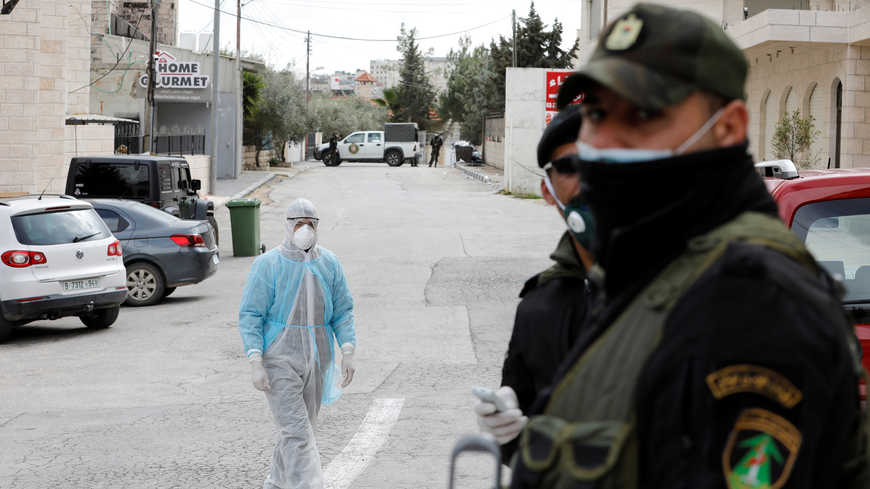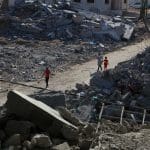
The response to the COVID-19 pandemic in Palestine brings back to focus central questions surrounding the resilience of Palestinian Authority leadership and the efficiency of its governance in times of crisis.
In this policy lab, Al-Shabaka analysts Mohammed Al-Khaldi and Fadi Quran join guest host Marwa Fatafta to weigh in on current emergency measures in the West Bank and their ramifications on the Palestinian people’s trust in leadership. They will also look at connections between the PA’s past public health policies and their impact on its capacity to handle the pandemic.
Marwa is a Palestinian writer, researcher and policy analyst based in Berlin. She leads Access Now’s work on digital rights in the Middle East and North Africa region as the MENA Policy Manager. She is also an advisory board member of the Palestinian digital rights organization 7amleh. Previously, she worked as the MENA Regional Advisor for Transparency International Secretariat. Marwa was a Fulbright scholar to the US, and holds an MA in International Relations from Maxwell School of Citizenship and Public Affairs, Syracuse University. She holds a second MA in Development and Governance from University of Duisburg-Essen.
Al-Shabaka Policy Member Mohammed Al-Khaldi is from the Gaza Strip and holds a Master of Health policy and Management from Al-Quds University-Abu Dis in 2012. He has been in Switzerland working on his PhD in Health Policy and Research at the Swiss TPH since September 2014. He previously worked as a lecturer and researcher at colleges and research institutes in Palestine and Switzerland and is also a consultant on different programs in development and relief, and training and research projects for the governmental, NGO and international agencies sectors.
Al-Shabaka Policy Member Fadi Quran is a Senior Campaigner at Avaaz and a Popular Struggle community organizer. He previously served as UN Advocacy Officer with Al-Haq’s legal research and advocacy unit. Apart from his work in advocacy and international law, Fadi is also an entrepreneur in the alternative energy field, where he has founded two companies bringing wind and solar energy to Palestine and other countries in the region. Fadi holds degrees in Physics and International Relations from Stanford University.


















